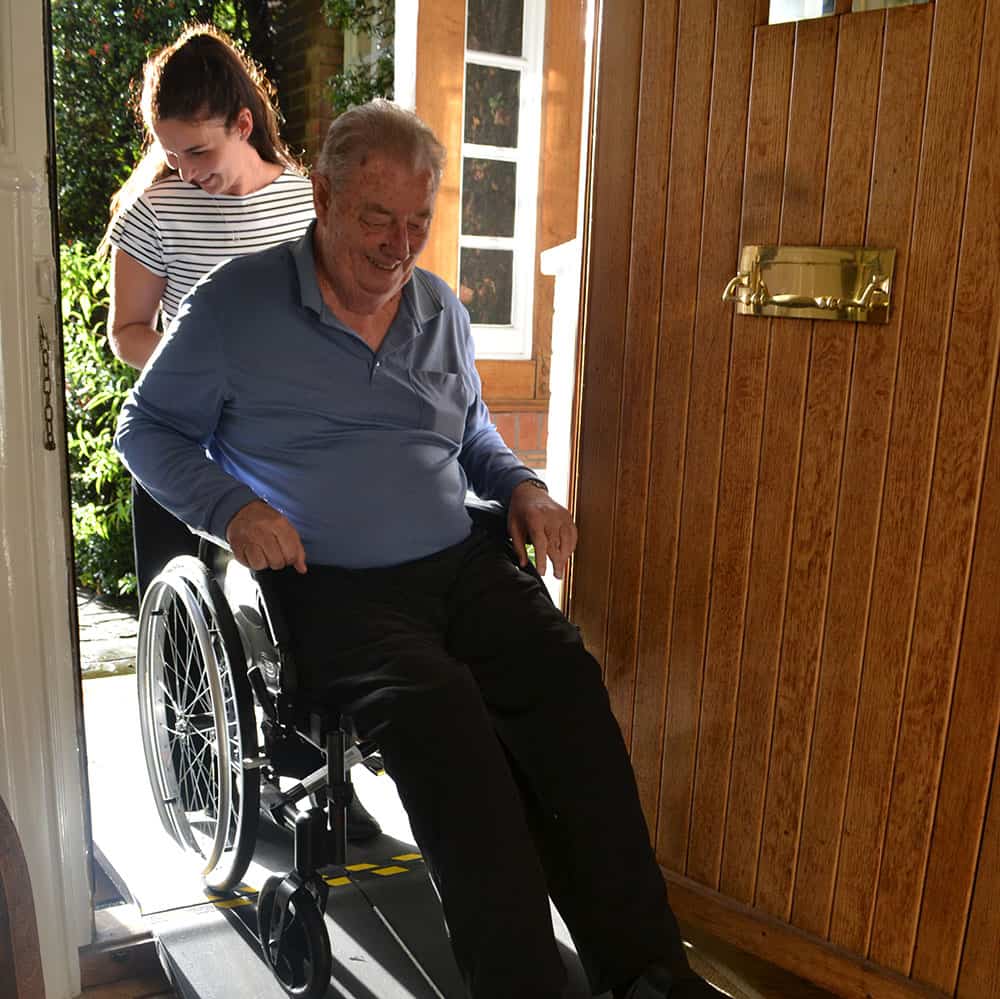23 percent of councils report disabled people waiting two years or more for vital home adaptations, new research shows

Disabled people are facing long waits for councils in England to carry out vital adaptations to make their homes more accessible, according to new research by leading disability charity Leonard Cheshire.
The findings are based on Freedom of Information responses from 180 councils about Disabled Facilities Grants in England from 2015-2019. A previous Leonard Cheshire investigation, ‘The Long Wait for a Home’, covering 2011-15, showed similar struggles to meet deadlines.
The research shows that 67 percent of councils consulted in England had disabled residents waiting longer than the 12-month statutory deadline for completing essential home adaptation work. Between the financial years 2015/16 and 2017/2018, across 180 councils, an average of over 1,000 people per year waited longer than twelve months for completion of adaptations.
Additionally, nearly one-quarter of councils show some disabled people waiting after council approval for two years or more before accommodation changes are complete.
Crucial works such as widening doors, putting in grab rails or making kitchens and bathrooms accessible allows disabled people to wash, cook and clean safely and often more independently. The works can reduce or in some cases remove the need for social care.
Without changes to make housing sufficiently accessible, people are at risk of physical injury and mental health problems, says Leonard Cheshire.
In addition, Leonard Cheshire’s report reveals that delays and missed deadlines persist as demand for home adaptations through Disabled Facilities Grants (DFGs) rose by 27 percent between 2015 and 2019.
By law, councils are required to approve or reject DFG applications within six months and then ensure that works are completed within 12 months.
Almost half of councils had at least one example of missing the initial six-month deadline to approve or deny completed DFG applications. Although, Leonard Cheshire says this figure could be higher because some councils did not provide this information.
Rene Gollenberg-Ryder, 38, lives in Bristol and uses a wheelchair. The former children’s social worker has Ehlers-Danlos Syndrome (EDS), which means she endures frequent dislocations and injuries. When she could no longer get upstairs to the bathroom after a series of falls, Rene enquired about a Disabled Facilities Grant in 2016. Several delays meant that work was not completed until years afterwards.
“It was a very stressful period before the bathroom was done. For three years I didn’t have a shower in my own home,” said Rene. “It was really hard to wash my hair in a bucket while sitting on the commode in the living room.”
Furthermore, Rene found that construction work did not happen when planned and it was of poor quality.
She added: “Unfortunately, it took a long time before the work started. Builders overcharged the council and did a really poor job. A few months on, it is falling apart and there are ongoing issues with the builders’ work being of a very low standard.”
Gemma Hope, Director of Policy at Leonard Cheshire, commented: “Disabled Facilities Grants are vital for disabled people. Underfunded councils need more resources to ensure that demand for these vital adaptations is met so that people can have homes that meet their individual needs.
“We want councils to ensure disabled people wait no longer than eighteen months for essential adaptations to their home.”
Several people who have experienced the DFG process also reported that they found the earlier application process challenging. An online survey conducted by Leonard Cheshire and Disability Horizons in spring 2020 revealed that 20 out of 35 disabled people found filling in a DFG application ‘difficult’ or ‘very difficult’.

